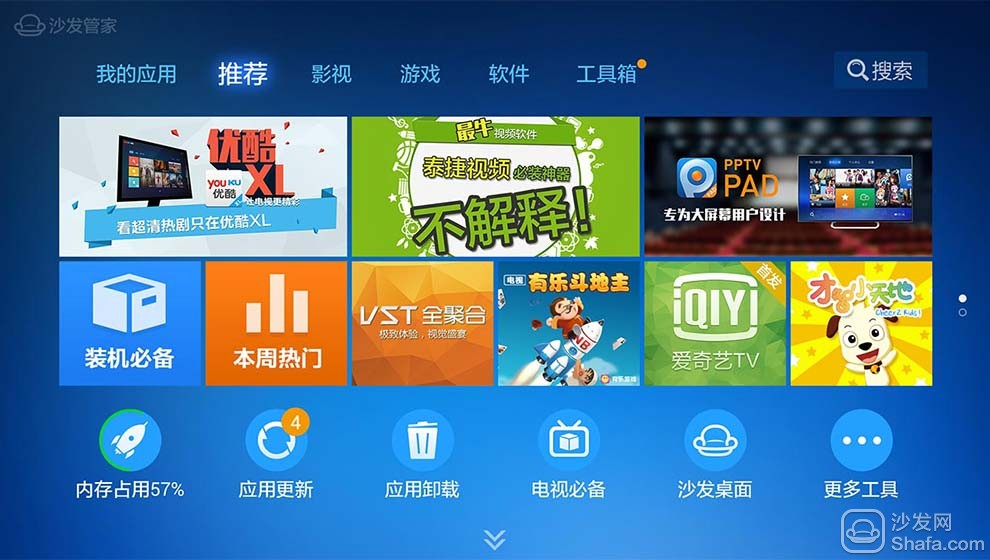As the home appliance with the largest screen size in the home, if TV can only watch television program sources, it will be a bit violent. In other words, the TV is on the road to “big winnerâ€. In recent years, the emergence of smart TVs has allowed us to see the possibility of diversified television development. At the same time, the overall performance of smart TVs that are not smart is also disappointing to consumers. In other words, people still need smart TVs, but smart TVs still have a lot of room for improvement.
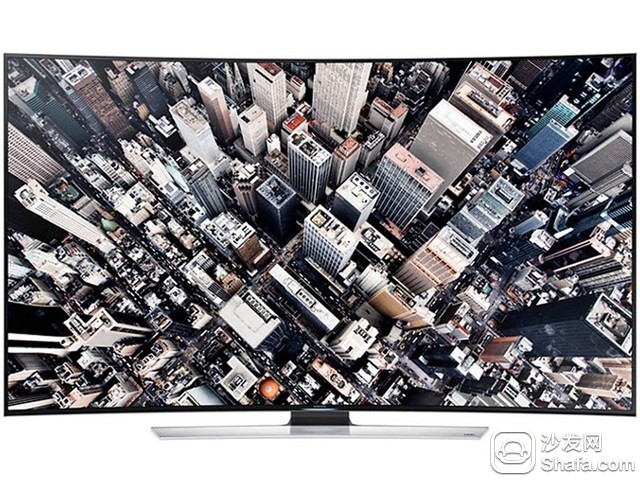
Smart TV's "smart road" is not simple
In the final analysis, people hope that televisions can have more functions. They can use the built-in broadcast control platform to chase dramas without using a computer, and use televisions with large screens and better display effects to achieve a higher level of vision. Enjoy (compared with desktop monitors and laptop screens); or through the built-in camera, start QQ or WeChat, and make video calls with friends and family. There is no doubt that users have these consumer needs, and unfortunately, there is hardly any television company to do them well.
Intelligent system platform is not uniform
The biggest hindrance to the development of smart TVs is the inconsistency of smart system platforms. Samsung developed its own smart TV system, LG implemented a unique webOS smart system, and millet simply adopted a relatively mature Android smart system, etc., resulting in severe fragmentation. Seriously hinder the further improvement of smart systems and smart experience.
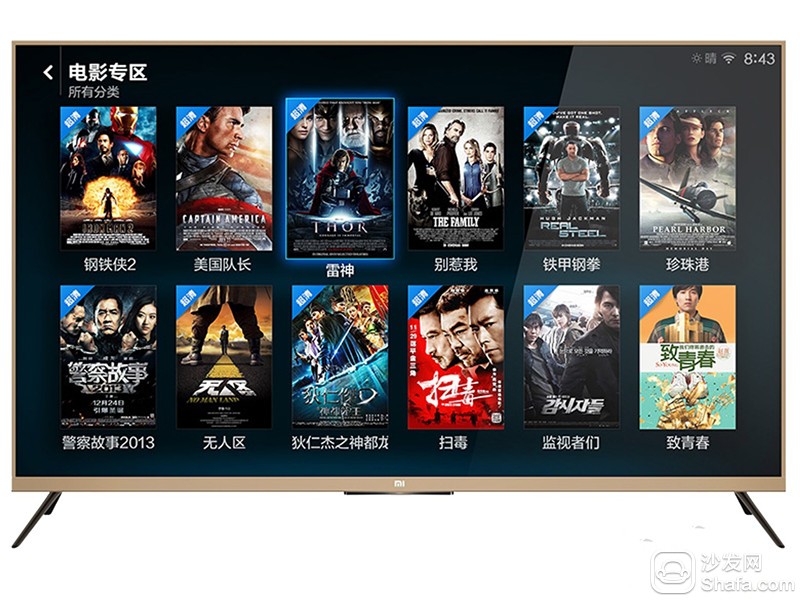
Millet TV 2 built-in system is easy to use but lacks core technology advantages
As far as Samsung is concerned, its own development of smart TV systems has extremely high technological content, voice control and gesture recognition are even more unique, and high-quality APP applications are commonplace. Unfortunately, the so-called excellent APP applications on TV platforms are actually Compared with smartphones, there is still a big gap. The LGwebOS intelligent system has distinct characteristics, but it lacks the "comrade-in-arms" that are promoted together. It is difficult to unify the arena. As for millet TV, the Android system is extremely user-friendly and easy to use, but lacks technical content (the lack of dynamic technology, gesture recognition, and other strong technical assistance).
The hardware system is not uniform
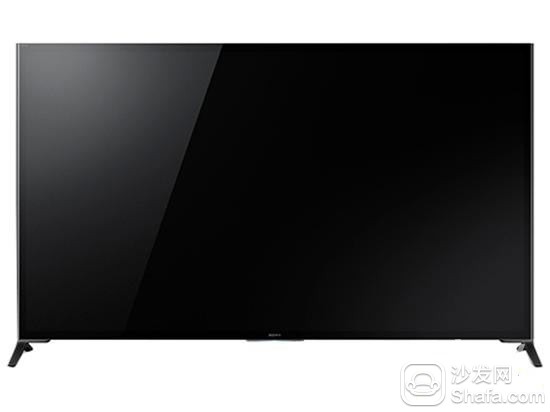
The hardware configuration of the flagship model is not satisfactory
For smart TVs, it is essential to set up a hardware platform that runs smart systems. In 2013, some smart TVs used the high-performance hardware platform of Qualcomm. By 2014, even the flagship models of joint venture brands used Mstar 6A918 in large quantities. On the hardware platform, performance has barely improved. There is a big gap between the hardware platform and the smart phone. Considering the long life of the TV set and the use of an outdated hardware platform from the beginning, it will be difficult to maintain a smooth intelligent system in the future.
Broadcasting control platform is not unified/game console impact
Smart TVs often have built-in broadcast control platforms to enhance their market competitiveness. However, in terms of the selection of broadcast control platforms, different TV manufacturers have different choices. Some choose Mango TV, some choose CNTV, some choose Southern Media, and some choose Best Connect, etc. And so on, each has its own resource advantage, in other words, users can not chase after the drama, such as a television show, Best renewal the first time, Mango TV can not watch.
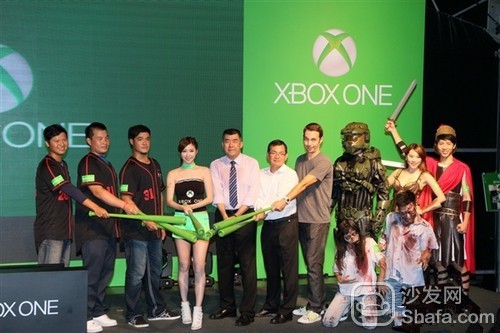
The XBOX ONE built-in broadcast control platform threatens the smart TV greatly (the experience is better than the TV built-in system)
In fact, smart TVs are also threatened by game consoles. For example, Microsoft Xboxone NB version has a built-in knowledgeable online video service. Users can watch online videos through game consoles, and the overall control experience is even better than the built-in smart systems of TVs. There is no reason for the user to choose the built-in broadcast control platform, directly through the XBOX ONE episode on it. Therefore, there are still many issues that TV makers have to consider.
The development of smart TV is destined to be a "protracted war"
CES2015 is about to kick off. TV hardware specifications are often more focused than built-in smart system platforms. From this perspective, people think that the picture quality is still the absolute core of TV products. In fact, the gap in the strength of each individual is not so great. Big. Therefore, the real place to open up the gap is a built-in intelligent system platform. Whoever can do the best will have a better chance of success.
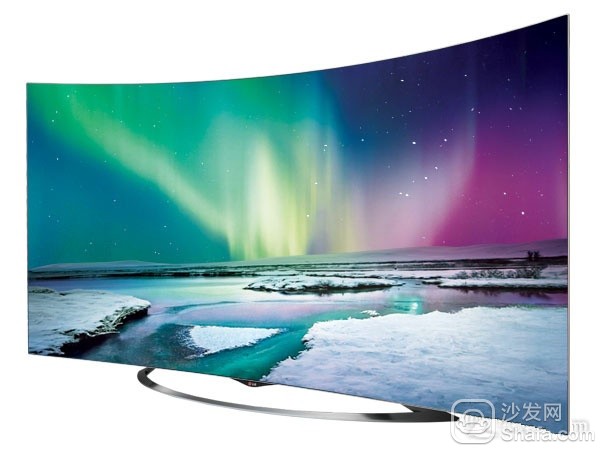
Intelligent systems need to seek breakthroughs to enhance the experience
There is no limit to the optimization of intelligent systems, and TV manufacturers are still on the way to constantly exploring breakthrough intelligent experiences. However, the inconsistency of intelligent system platforms, the inconsistency of hardware systems, the incompleteness of broadcast control platforms, and the threats of external devices such as game consoles, etc., are destined to the development of smart TVs as a conservative and slow “protracted warâ€. Not good news for consumers. In fact, as of now, there is no smart TV that can fully satisfy users on the smart experience. We hope CES2015 will surprise us.
Recommended installation sofa butler, download address: http://app.shafa.com/ 